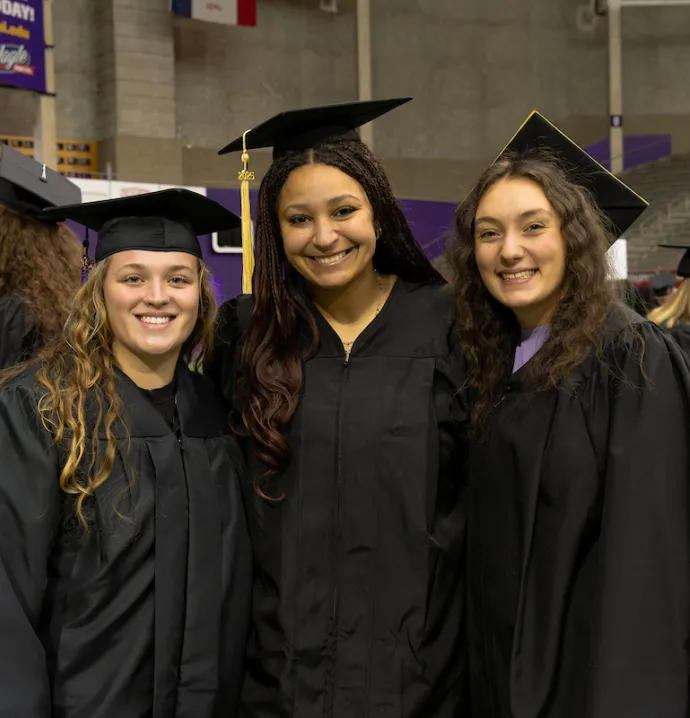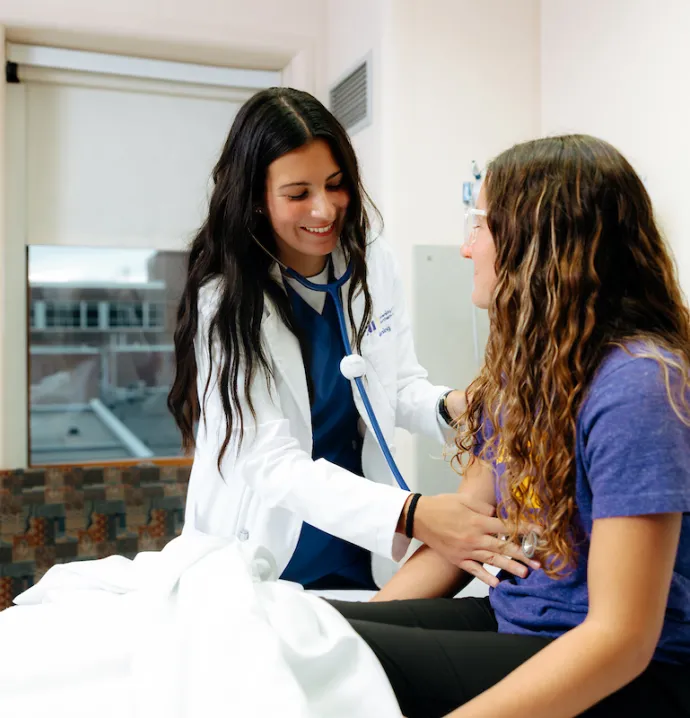Making it easier to swallow
Making it easier to swallow
Imagine this: You’re eating a meal, and with every bite, every single bite, you’re not sure if you’ll be able to swallow your food. This worry eventually consumes you, to the point that you stop talking at the dinner table, stop doing anything that might distract you from the seemingly mundane task of swallowing. Meals become a chore, something to dread. You gather with your family and you hope that gathering isn’t focused on a meal.
Swallowing can be something we take for granted. We do it without thought. But for someone suffering from dysphagia, which is the medical term for a difficulty with swallowing, this seemingly simple task is actually an intricate dance between the many nerves and muscles that coordinate eating and breathing. A misstep can be the difference between life and death.
It’s a complex condition, but research to solve an aspect of dysphagia is happening at the University of Northern Iowa, at the Sertoma Research Laboratory under the direction of Dr. Laura Pitts, an assistant professor in the department of communication sciences and disorders.
Pitts has seen firsthand the toll that a swallowing disorder can have on an individual and their family.
“Many individuals report they’re not sure when they might have a choking episode,” Pitts said. “They’re on high alert. It can prevent them from going out or attending family events. It affects their quality of life and can lead to depression. Our goal is to not only make swallowing safer, but to allow patients to once again enjoy eating and participate in social activities for as long as possible.”
While dysphagia can occur in any age range and can be the result of a number of factors, from brain tumors to surgery complications, Pitts’ research is focused on dysphagia in people with Parkinson’s disease, stroke survivors and people recovering from traumatic brain and/or spinal cord injuries.
With the help of UNI graduate students, Pitts uses exercise therapies to strengthen patient’s swallowing ability and also uses equipment to measure the cough and breathing ability of people with Parkinson’s disease.
“Many disorders can cause a weakness in the ability to swallow, but Parkinson’s disease in particular can change the timing and the strength of the swallow,” Pitts said. “We want to strengthen their swallow and also want them to cough strongly in case something wasn’t swallowed well.”
For the past three summers, UNI has offered the Intensive Swallow Program, which is a four-week program where graduate students provide swallowing therapy under Pitts’ supervision.
In the research lab, students use equipment to measure the velocity of cough, and the timing and movement of a swallow from x-rays videos of the throat (known as videofluoroscopy). Graduate students guide patients through breathing exercises and tongue-strengthening routines, which are crucial to generating enough pressure to properly swallow. Pitts can also assess swallowing safety and therapy progress by inserting a small camera through the nose to observe a patient’s swallow (known as a fiberoptic endoscopic evaluation of swallowing).
Morgan Powers, a graduate student in speech-language pathology, worked with Pitts during the summer programs of 2017 and 2018.
“This type of hands-on research experience as a student is extremely valuable,” Powers said. “Through this experience, I have learned how to conduct a research study with participants, as well as gained knowledge of swallowing disorders that I would not have gained outside of this study.”
Pitts’ research is in collaboration with the Shirley Ryan AbilityLab, the Mayo Clinic and the Feinberg School of Medicine at Northwestern University. Her students frequently intern at the Shirley Ryan AbilityLab, which has been the number one rehabilitation hospital in the country since 1991.
While Pitts has received her share of honors – she received a McElroy Fellowship in 2008 and was recognized as the 2013 New Investigator of the Year by the international Dysphagia Research Society – she said the most enjoyable aspect of her work is giving people back the ability to eat the foods they love, a simple gift with a beauty that’s only illuminated once it’s taken away.
“It is a continual inspiration to celebrate successes with my patients,” Pitts said. “I had the opportunity to work with a young woman with dysphagia who wanted cake on her 21st birthday. We worked toward that, and her family and I got to share that sweet moment with her on her birthday. All of us have foods we look forward to and connect with, and it’s very rewarding to help people get those things back into their life.”




